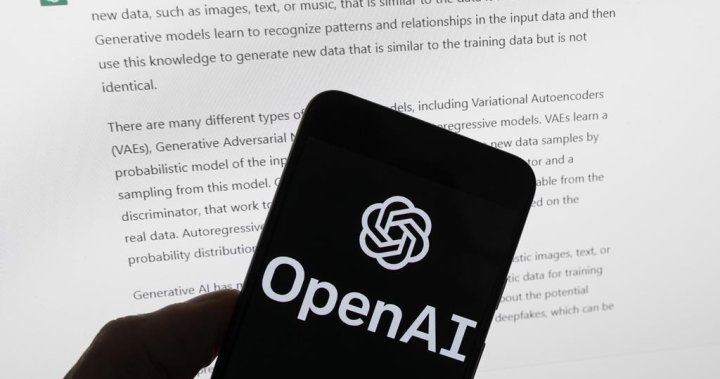
Canadian authorities cautious, nervous about AI in political campaigns
Global News
Artificial intelligence tools are being increasingly used and, some fear, abused in the U.S. But in Canada, political actors are just starting take up AI tools.
As American regulators and state legislatures quickly implement new rules governing the use of artificial intelligence tools in this presidential election year, Canadian legislators and election authorities are taking a more cautious approach in a year in which three provinces will hold general elections.
And while campaign operatives in the United States increasingly explore the legitimate use of artificial intelligence to find and motivate voters more quickly and efficiently, the use of AI tools by Canadian campaigners appears to be in its infancy.
“AI is very much an emerging tool in the world of elections,” Steve Outhouse said in an e-mail. Outhouse is the campaign manager for the New Brunswick Progressive Conservatives (PCNB) and previously managed the United Conservative campaign that delivered a majority government to Danielle Smith in Alberta. He also ran both of Leslyn Lewis’s federal Conservative leadership campaigns.
In all those campaigns, Outhouse, like most modern professional campaigners, used a suite of digital tools to identify voters, raise money and get his supporters to a ballot box.
In New Brunswick this year, AI tools might augment existing digital tools, Outhouse said, though any phone calls the party places to voters will have a human being behind them.
“While we wouldn’t rule out potentially using elements of (AI), all calling done by the PCNB in this election cycle will either be live callers or messages recorded by the actual individual who is reaching out to voters,” he said.
A spokesperson for the New Brunswick Green Party said it, too, would stick to human beings and traditional voter contact methods.
In the United States, though, campaign operatives are already using AI tools to develop the scripts that human agents use when placing phone calls, to generate images and video, and to analyze voter data.












